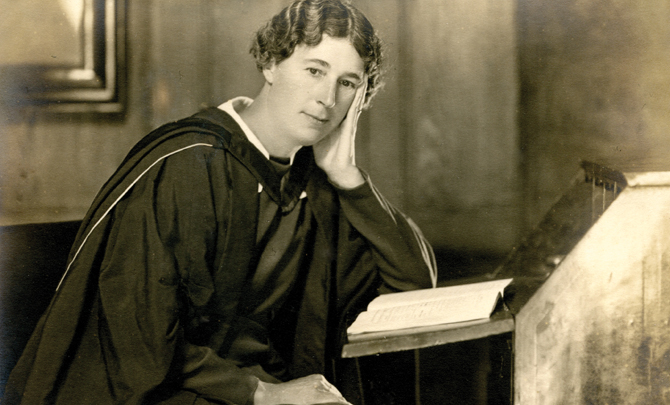The Constance Coltman century - Reform Magazine
This year, as well as being a major anniversary for the Reformation, marks a century since the ordination of the first female minister in Britain. Kirsty Thorpe looks back in celebration
Constance Todd was ordained at a dark moment during the First World War. In Belgium, the third battle of Ypres was bogged down in the mud around the village of Passchendaele as the toll of death and injury for both sides mounted. On the home front there were German air raids in London, food and fuel shortages, labour unrest and transport problems. It must have seemed to many people as though the war would never end.
A ray of light in the darkness shone out from the unusual ordination service at the King’s Weigh House, a Congregational church just off Oxford Street in London. Some people realised this was a highly significant event with far reaching effects for the Christian Church, while others saw it as another example of women being needed to step into men’s shoes. The shortage of manpower caused by the war meant that women were already doing many jobs which had previously been seen as male preserves. Some people were asking why such an opening up of opportunities should not extend to ministry in the Church.
There can be little doubt that Constance and her fiance Claud, who was ordained alongside her, knew they were taking part in a historic moment of deep religious as well as social significance. They had both trained for ministry. They became engaged to each other, and volunteered to work side-by-side in the East End mission church supported by the King’s Weigh House. Constance had begun exploring her vocation within the Presbyterian Church of England but when she met resistance turned to Mansfield College, Oxford. Dr Selbie, the principal, saw God at work in her and admitted her to the ministerial training course in 1913. He would no doubt have explained to her that the college’s Congregational identity meant that being trained did not guarantee ordination at the end of the course.
The presiding minister at her ordination in 1917, WE Orchard, was a high-profile and controversial minister, about whom opinions were deeply divided. An outspoken pacifist, lover of High Church liturgy and preacher of the social gospel, he was also a champion of women’s ministry. Three other Congregational ministers joined him in the ordination ceremony. The next day, Claud and Constance were married. At a time when women were expected to give up paid work on their marriage and retire into domesticity, this order of events sent a clear message that Constance saw her call to ministry as taking precedence over her married status. …
___
This is an extract from an article published in the September 2017 edition of Reform















Submit a Comment